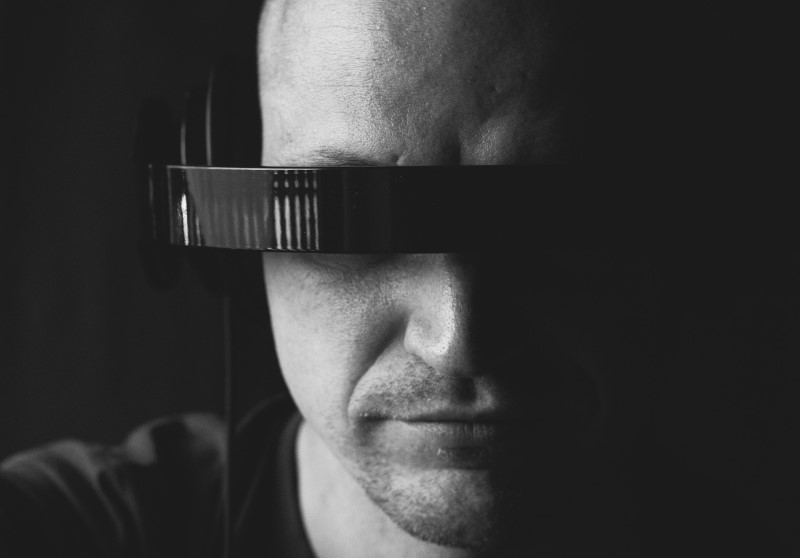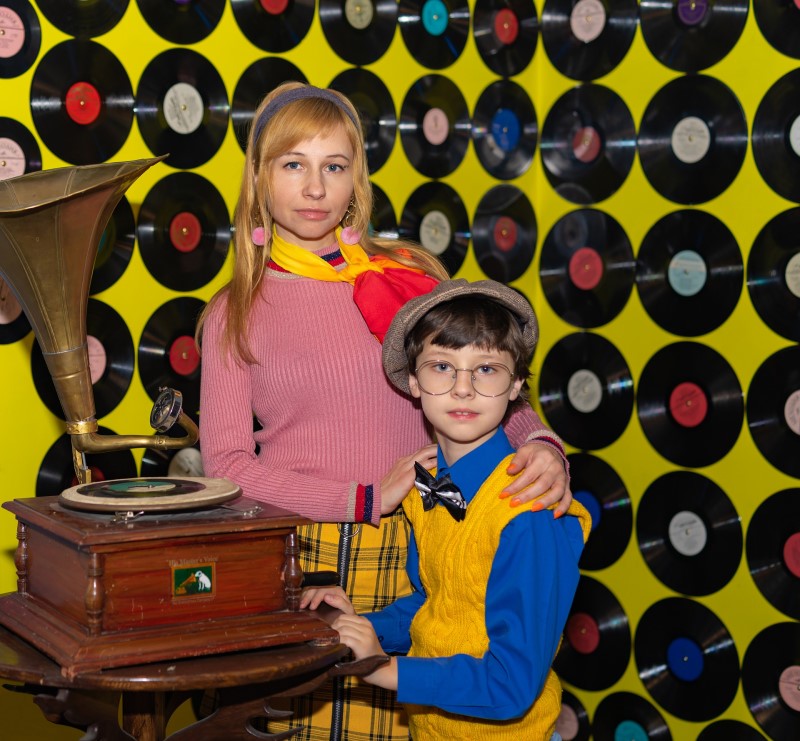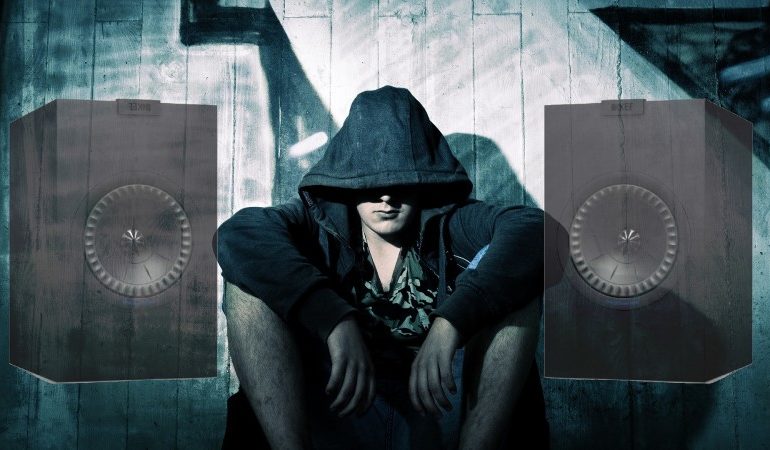How Audiophiles are a Low-Key Cult
Saying something is a “cult” has become a cliché. We hear it about everything. Are you a vegan? You’re in a cult. Trying out the keto diet? Don’t get sucked into the cult! Joined a CrossFit gym? Well, it was nice being your friend. Too bad you’ll drop us all for those try-hards cultists at the gym! It’s become shorthand for a group that in any way attracts people and encourages them to change their lives. This can literally describe any hobby, sport, or group. Start reading comic books? You’ll end up making more friends that do so. Then, you’ll want to talk about it with your “normal” friends. Join a bowling league? Your friends are going to get tired of hearing about it. But a true cult is one that has a real, measurable, negative effect on your life. While we wouldn’t define audiophiles as an actual cult, they do display low-key cult-like characteristics.
Defining an Audiophile
Most audiophiles self-identify as such, but not all those that claim to be audiophiles fit our definition of one for the purposes of this article. Many would claim that I am an audiophile because I have a dedicated home theater, more headphones than you can shake a stick at, and I can define Atmos. But, for this article, an audiophile is more than someone who is an audio enthusiast. An audiophile is one that believes that there is a perfect combination of components and cabling that can create a nearly euphoric audio experience. They are willing to spend inordinate amounts of money to achieve this audio goal. They spend hours on forums talking about mixing and matching gear looking for new combinations for their own system. Most importantly, they give little credence to scientific measurements and “trust their ears.” If they at all address room acoustics, it is to dismiss it as unimportant or already “solved” by the design of their speakers, the combination of their gear, or a single “audiophile” room-correction device.
Defining a Cult

You can find a ton of definitions of cults out there. Most of them look like this:
A cult is a group or movement held together by a shared commitment to a charismatic leader or ideology. It has a belief system that has the answers to all of life’s questions and offers a special solution to be gained only by following the leader’s rules. It requires a high level of commitment from at least some of the members.
-From the Tennessean
Clearly, audiophiles don’t have a dedicated leader (though we’d argue there are some reviewers and manufacturers that encourage cult-like behaviors in their followers) so it is not an actual cult. But when you look at the characteristics of a cult, you can come up with some surprising similarities. The ICSA (International Cultic Studies Association, founded in 1979) has a more encompassing view of cults and some of the characteristics sound surprisingly familiar.
Again, you can look at many hobbies and interests and find cult-like characteristics. But where we draw the line is when those characteristics cross the line into harming the users. Sure, your vegan friend might spend more on an apple than you would, but they aren’t selling their house and giving all their money to their vegan overlord. Your CrossFit friend is always asking you to join, but they aren’t cutting their families out of their life if they don’t join their gym. Or maybe they are. I don’t do fit much less CrossFit.
We’ve listed the characteristics of a cult as defined by the ICSA and we’ll examine how or if audiophile behaviors fit those definitions. In the end, we’ll see that while the audiophile cannot be described as a cultist, they do exhibit many of their beliefs and actions.
The group displays excessively zealous and unquestioning commitment to its leader and (whether he is alive or dead) regards his belief system, ideology, and practices as the Truth, as law.
We’ve already said that most audiophiles don’t have a “leader” per se. But they do have an overriding belief that science cannot describe everything in the world of audio. That their experiences cannot be explained by scientific measurement. Visit any audio forum and you’ll inevitably see posts that bear this out. The logic goes, “I heard a thing, but the measurements suggest that I couldn’t have heard that thing. Therefore the measurements are wrong.”
This is classic audiophile thinking. They go no further. They don’t continue to examine the science to see if there could be any other explanations (hint: it was probably the room). The logical conclusion is that if the measurements don’t match their experience, the measurements must be wrong. This wholesale rejection of science paves the way for every other audiophile belief.
To question this belief is to bring your audiophile credentials under scrutiny. Once you have enough experience with the belief that it is only your ears and your experience that matters, trying to “prove” those experiences in any way will bring scorn from the audiophile community. “I know what the science suggests,” says the audiophile, “but I hear the difference for myself. And if you were in my room, you’d hear it too!”
Any additional evidence is not only irrelevant, it is distracting from the truth. The truth that the audiophile ear cannot be replaced by a machine. Computers may say that the speaker is flawed, or that the wire makes no difference, or that elevating the cables can’t improve the sound, but the audiophile heard it. Therefore it is true and cannot be contested.
The leadership dictates, sometimes in great detail, how members should think, act, and feel.

This doesn’t play out as much in the audiophile world. What audiophiles do control, or at least attempt to control, is the gear that others buy. Their rejection of science encourages them to assign nearly magical properties to their gear. They swapped out a speaker cable and now their whole system sounds different. “It was as if a veil was lifted,” is practically a mantra of the audiophile.
What this means is that the insular nature of the community rejects any “solution” to audio issues that don’t involve buying ever more expensive gear. This puts tremendous pressure on the audiophile to find the perfect combination of components that will give them the audiophile experience they are convinced that others are enjoying. This is akin to FOMO (Fear Of Missing Out), but the audiophile is looking for a near orgasmic audio experience and is encouraged to spend any amount of money to achieve it.
The group is elitist, claiming a special, exalted status for itself, its leader(s), and its members.
If you’ve ever come across the term “golden ear” and had it refer to anything other than the speaker line, you’ll know how audiophiles think of themselves. Of course they are elite, they are better than me, better than you. They can hear things that you can’t. If you could, you’d be more like them! You’d be willing to fork out thousands of dollars for a power cable. You’d be able to hear the difference between digital cables (because it’s “obvious” to them). And if you can’t hear the difference, you’re just not good enough.
This isn’t to say that they are actually better at hearing than others. What they are, is someone with more practice. As we all know, the more you practice a thing, the better you get at a thing. I’ve sat down people that have never once cared how their speakers sounded and walked them through my review process. In the end, they could hear the differences just as well as I could, it just took them a little longer. Is it because I have better ears than them? Probably not. I just have more practice.
But to the audiophile, that is irrelevant. Yes, they practice more than others and that’s because they care more than others. But there is something about them that is special. They’ll have their hearing tested (and if the tests come back less than what they expected, they’ll explain those results away as they would a test of their speaker wire or amplifier). They know that they can hear things that others can’t because they heard it and you didn’t. This makes them special, better.
The group has a polarized us-versus-them mentality, which may cause conflict with the wider society.
Go into an audiophile forum and state that you’ve tested speaker cables and there is no difference between a cable bought off the shelf at Home Depot and the really expensive ones. Back your subjective listening experience with actual electrical measurements. See how fast you get banned from that forum.
This doesn’t put them directly at odds with the rest of the world, per se. It does encourage insular and incestuous beliefs. How do you know you are dealing with an audiophile? They’ll post regularly for people to “listen for themselves,” or “trust their ears.” They are looking for any evidence that the original poster is open to the audiophile way of thinking. They will then draw them in and feed them the audiophile beliefs. As others contradict, they’ll discount those claims with others that can be easily sourced from a Google search and just as easily refuted by another.
Slowly the new audiophile finds themselves surrounded by “experts” that will help them unlock the potential of their gear. It’s exciting! They are learning and all these people are so nice. Those others, the ones that constantly talk about measurements and science, are so boring. The audiophiles talk about how the music makes you feel. About listening and experiencing the music. That’s what you signed up for. You didn’t want to sit around with a microphone and a computer! You wanted to listen to music!
And, suddenly, you’re an audiophile.
The leader is not accountable to any authorities.
The group is not accountable to science. This is the main authority they “fight” against. They reject any objective measurements over subjective experiences. In fact, including objective measurements in any discussion can lead to being banned or censured from the group.
The group teaches or implies that its supposedly exalted ends justify whatever means it deems necessary. This may result in members’ participating in behaviors or activities they would have considered reprehensible or unethical before they joined the group.
Most audiophiles would admit that spending as much as they do on their AV systems is insane. But they wear that “insanity” as a badge of honor. The amount they spend directly correlates to how much they care about the sound in their system. They spent $20k on speaker wire and you only spent $4k? Clearly, they care 5x’s more. They don’t couch it in those terms, but the implications are very real in the conversations.
This is far from the definition of an actual cult unless the audiophile starts spending money they don’t have. That isn’t something I’ve run across before, but it may happen. In the end, spending too much money on a hobby isn’t unusual.
The unethical part is far more insidious. As the audiophile continues down the audiophile path, they inevitably run into something that they just can’t believe. Some piece of audiophile tech that is so outlandish that no amount of personal accounts can convince them. This is a crisis point for the audiophile. They can either continue with the, “Well, if they heard something, it must have done something,” line or reexamine their entire belief structure.
Many times they will simply wave it away. They won’t talk about some of the more outlandish products (little clocks, drawing on your CDs, wrapping your wires in EMF-resistant materials…the list goes on). But they can’t really refute them either. When someone pops up on the forums and asks about one of these products, what does the audiophile do? Do they clearly state that such a product just CAN’T work (because of course it can’t) and risk ostracization by the rest of the group or do they stay silent and let the “true believers” answer? Most of the time, the latter.
The leadership induces feelings of shame and/or guilt in order to influence and/or control members. Often, this is done through peer pressure and subtle forms of persuasion.

This is a constant in audiophile circles. If you don’t hear something, then the problem is either your gear, or you. You definitely don’t want it to be you, so you start looking at your gear. The peer pressure to agree with the group about the efficacy of wires or DACs or other gear is great. If you start to question that the gear might not be the solution, or that a gear change didn’t make a difference, you could be labeled a “lead-ear” and your opinions ignored.
This leads people to not only convince themselves that they hear something that isn’t there, but they may start lying online in order to become an “expert.” They’ll claim tons of experience in the AV industry (usually as a musician turned recording engineer) and oodles of personal A/B testing where they consistently and easily heard the differences that science says shouldn’t exist. Nevermind there is a $1,000,000 challenge out there that they could have claimed if they could prove they could hear the differences between speaker wire. They are far too busy A/B’ing amps to collect an easy $1 million, right? Riiiiiiiight…
Subservience to the leader or group requires members to cut ties with family and friends, and to radically alter the personal goals and activities they had before they joined the group.
The audiophile low-key cult member doesn’t often cut ties to families, though they may limit how much they talk about their hobby once others learn how much they are spending.
The group is preoccupied with bringing in new members.
The grooming process of a budding audiophile is very specific and very beneficial to the cult-like group. They are happy to have new members, but mostly to reaffirm their own beliefs. Another person that is “discovering” the “truths” of the audiophile group reassures the older members that they are right. They vicariously relive their own experiences as the new member tries new gear. It’s like a dopamine shot to the pleasure centers of their brains.
The group is preoccupied with making money.
If you changed this one from “making” to “spending,” it would apply.
Members are expected to devote inordinate amounts of time to the group and group-related activities.

Most audiophile communities are online these days. There are in-person groups that exist in larger cities that meet periodically for listening sessions, but these are less common. The audiophile of today is expected to post regularly on their forums, asking questions, providing reviews, giving advice, and congratulating other members on new purchases. There is no cult-like campus in the middle of a desert somewhere that….wait.
Yes, there are yearly and a couple of times a year trade shows for the audiophile. No, they are not a cult compound but they can feel very much that way to the non-audiophile. If you are not “in” with the group, they very much view you with suspicion and, depending on your responses to questions, contempt. These are times and places where the audiophile can talk openly about his or her beliefs. They can have serious discussions on the type of material that should be used to elevate their cables, not whether or not those cables need to be elevated in the first place.
This is not the audiophile spending inordinate amounts of time with the group, but spending a lot of money to meet with the group in what they would consider to be a “safe space.” They spend their online lives defending their audiophile beliefs, they shouldn’t have to do it at their quasi-cult meetups.
The most loyal members (the “true believers”) feel there can be no life outside the context of the group. They believe there is no other way to be and often fear reprisals to themselves or others if they leave (or even consider leaving) the group.
This is the most dangerous aspect of a true cult, and it still holds true for the audiophile. They have spent a lot of time cultivating their online persona. Friends have been made, expertise established, and they have a measure of respect and authority. They may not be considered the leader, but they are a leader.
This means something to people. They don’t want to leave that behind without a good reason.
On top of that, they have spent an exorbitant amount of money on their hobby. If they were to admit that much of what they believed about audio wasn’t true, that would be a huge hit to their ego. Not only did they waste that money, but they were a fool to do so. And they helped fool others! This is not something a person can do easily and most can’t do it at all.
When people leave actual cults, they often have to leave their families and friends behind. They may have to contend with abuse, threats, and more. While online death threats, doxing, and other forms of online harassment have become increasingly (and disturbingly) common, that usually isn’t a fear of the audiophile. They can change their moniker if they want, or just stop posting. The other audiophiles might not know what happened to them, but we don’t often see them actively try to abuse those that leave.
Unless they actively and publically announce their departure and denounce their previous beliefs. This doesn’t happen often, and when it does, it throws the cult-like members of the audiophile community into a frenzy. They defend their beliefs, they scrub their forums, and they make new rules to make sure dissent is not tolerated. This doesn’t happen often, and I couldn’t find an example to link up here, but I have seen it happen.
Conclusion
So what if audiophiles resemble a cult in how they act? You can make the same claim for a ton of hobbies out there. That’s true. But when we are in the presence of cult-like people, we should be wary. That praise and attention we get when we show an interest in a new sport or hobby can be intoxicating. But it can quickly switch to toxic the minute we start to question the beliefs of the group.
If you are reading this, you very well might consider yourself an audiophile. That’s fine. Just be aware that not everyone cares about audio the way you do. No amount of me exposing my mother to great sound is going to get her to integrate anything other than a soundbar in her home. Never mind that she breaks about every rule in setting up her room and then complains about dialogue intelligibility. I walk her through room acoustics and how adding an absorption panel behind her couch (which is pushed up against a wall) will help. She’s not going to do it.
And that just has to be okay.
We need to be wary of others pressuring us to agree with their beliefs, and of ourselves wanting others to agree with what we believe. Just because someone else doesn’t value your hobby, doesn’t mean it doesn’t have value. Plus, movies sound way better at your house and they damn well know it!
Further Reading: If you doubt or question anything I’ve said above, please Google “Does raising speaker cables off the floor really make a big difference” and read literally any thread on any forum. You’ll see all the behaviors listed above.



Though I would never call myself a true audiophile, I did tip my toe into that pool often. My beer budget I guess precluded me from attaining audiophile status, maybe my mind was strong enough for me to not fall totally into this cult.
That said, I did play around in it and yes bought into a lot of the bullcrap and drank much of the Koolaid. I now totally understand what Tom is writing here. The money even my beer budget allowed me to spend was SILLY, ALMOST EFFING CRAZY! I sit back and think about what that money could have bought me of real value or invested in for a safer financial future.
“But, but, but, you can’t take it with you.” says the audiophile. No I can’t but that does not justify spending money on audiophilia or more exact audiophoolery! Just because I can’t take my money with me when I go, does not mean I should make essentially stupid buying choices.
Much like most audiophiles I listened to gear and not music. The audiophile will tell you everything he can and feels about his gear, the stuff he liked/likes and the stuff he bought to replace perfectly good gear already. Each new purchase changed completely the sound of this audio system. Be it a new piece of gear or a silly expensive RCA cable, power cord, speaker wire or other AUDIOPHILE APPROVED whatever!
All too many audiophiles NEVER sit and listen to the music, they sit and listen to the gear or their perception of what the gear should sound like. I know because many times even my beer budget audiophile toe dipping that was how I listened to stuff.
Nobody questions buying gear based on good value and return on investment to performance. Better value gear lasts longer and gives you more peace of mind. But the audiophile is NEVER satisfied. It’s a never ending dog chasing his tail issue. For me it was especially getting back goo goo gaa gaa into vinyl. Buying turntable after turntable, cartridge after cartridge, cleaning machine after cleaning machine etc…. CHASING MY TAIL! It was never good enough or just right.
Other than buying good used vinyl cheap at thrift stores (including hundreds of used albums bought say for $0.50 or $1.00 but NEVER LISTENED TOO!) all was a money pit! New vinyl is almost always more expensive than the CD counterpart, about double the cost. Sure it was/is nostalgic and ritualistic to pull out a vinyl LP and spin it, but having re-found my interest in all my CD’s which were basically boxed up for years, I have come to see or hear how frigging great my CD’s sound on my competently and fairly budgeted for A/V system. Using room correction, proper speaker set up and touch of room treatments, well when I listen to my CD’s and I love the Dolby Prologic Music setting, I feel I am just listening to music. When I play my vinyl LP’s even those that are outstanding in sound quality I always feeI that I am listening to a vinyl LP.
My audiophoolery as limited as it was has cost me may thousands of wasted $$$. Money that could have been used for other things to enjoy and do with.
Thanks for the first-person perspective. Appreciate your feedback!
You’re painting with a rather wide brush. I’ve come across lots of people in audio forums and groups that poke fun at snake oil cables and other woo-woo aspects of audio. ASR is a forum dedicated to just posting and discussing measurements. They are completely objective in their approach. SBAF is somewhere in the middle. Head-FI has a fair amount of what you are talking about but I know there are worse offenders that I hear about, I just don’t spend any time there.
Anyway, I agree with a lot of what you are saying but there are plenty of audiophiles that are skeptical of “cables” and other things you can’t measure. That being said, there are headphones that don’t measure well that I enjoy very much. The Grado SR80E being one. With a TTVJ pad swap, these headphones go from bright with an upward sloping FR, to a downward sloping FR with much better bass response. Completely different headphones but guys that are entirely objective write them off as junk. They just had the wrong pads on them.
Back in the 1970s and ’80s I was deep into all the magazines like Stereophile, The Absolute Sound, HiFi+ and several others. The reviews of new products were always claiming to be big improvements over previous. After reading this stuff for a few years, you had to come to the conclusion that a 1980 product with a favorable was vastly better than a 1975 product. Those amps were getting better, those cartridges were too (with the improvement pretty much tied to the price). The one product that may have been improving at that time were speakers since the Canadian research was emerging and new materials made real improvements possible. But still, the enormous advances that these reviews seemed to indicate were happening really weren’t when you actually listened to the supposed best equipment made 10 years earlier to the latest favored stuff. There was no evidence of massive improvements in amplifiers, preamps, phono cartridges. When I realized this, I gave up on the audiophile world though I still appreciate and strive for high quality sound.
And yet, Audiophiles are still buying separate DACs, a technology that hasn’t really gotten audibly better in decades. Michael, I agree with you. Many reviews tout massive improvements (and have for years). Much of the technology in AV has matured to the point where you can make something technically better but not audibly (see DAC). There are still some things that can and do improve (Ultra Short Throw projectors being an example). But believing that small improvements (changing a speaker cable for example) can make massive audible differences is a little crazy.